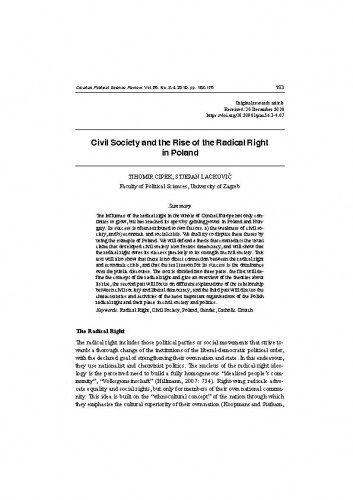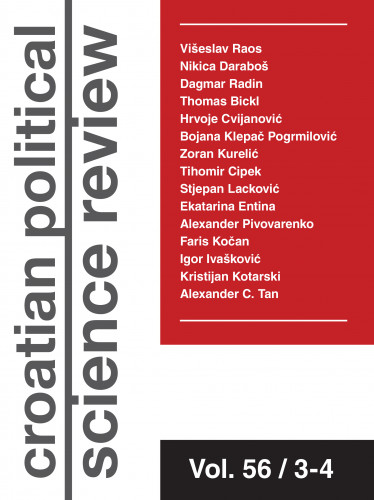The influence of the radical right in the whole of Central Europe not only continues to grow, but has reached its apex by gaining power in Poland and Hungary. Its success is often attributed to two factors: a) the weakness of civil society, and b) economic and social crisis. We shall try to dispute these theses by using the example of Poland. We will defend a thesis that contradicts the usual claim that developed civil society also fosters democracy, and will show that the radical right owes its success precisely to its strength in civil society. This text will also show that there is no direct connection between the radical right and economic crisis, and that the real reason for its success is the dominance over the public discourse. The text is divided into three parts: the first will define the concept of the radical right and give an overview of the theories about its rise; the second part will focus on different explanations of the relationship between civil society and liberal democracy; and the third part will discuss the characteristics and activities of the most important organisations of the Polish radical right and their place in civil society and politics.
Sažetak

 Politička misao : Croatian political science review : 56,3-4(2019) / glavni i odgovorni urednik Dejan Jović.
Politička misao : Croatian political science review : 56,3-4(2019) / glavni i odgovorni urednik Dejan Jović.